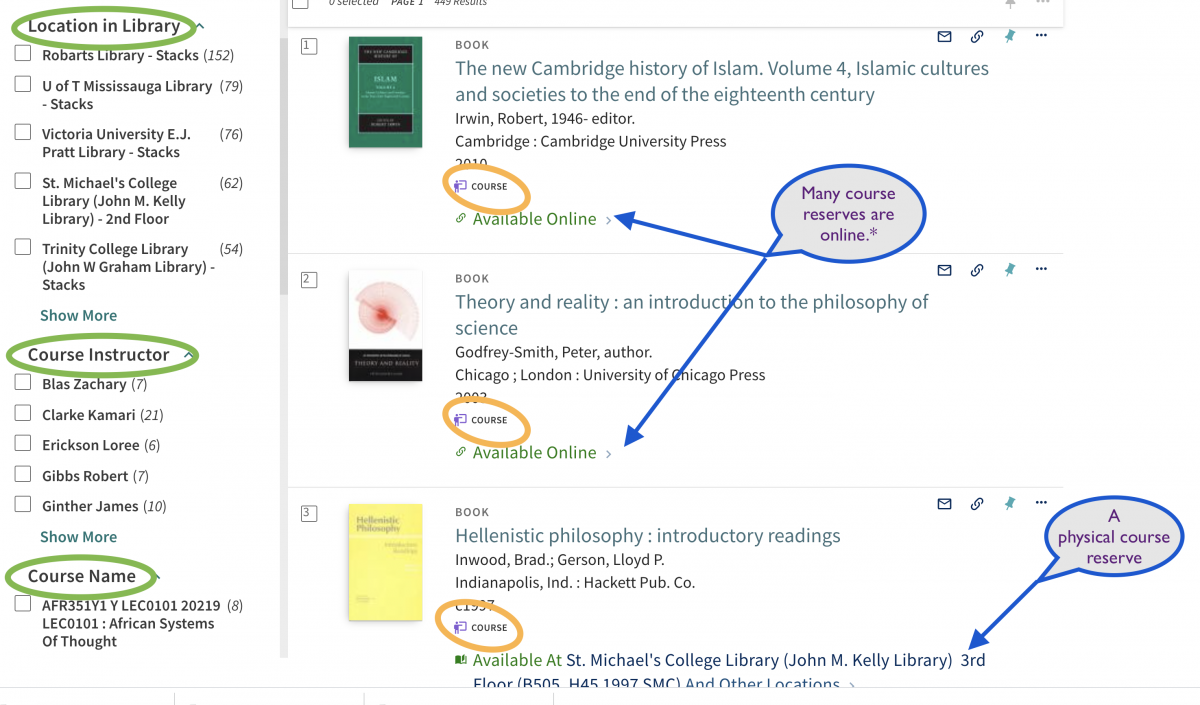Fines can be paid:
- Online
- In person at the circulation desk of some libraries
- By telephone: 416-978-8450
Fines can be paid:

Please see the instructions for your operating system:
Wireless printing costs the same as regular printing for the location you are printing from.
If you want a book that has already been checked out to someone else for longer than two weeks, you can request that the book is returned early.
To place a recall request:
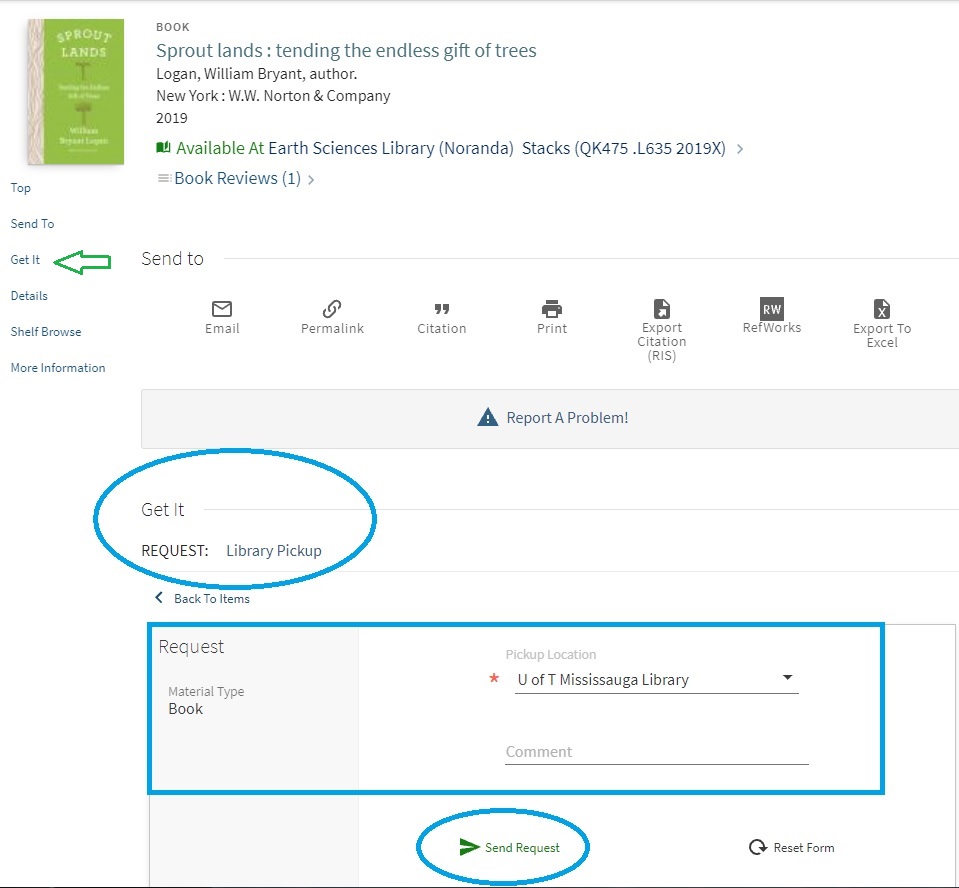
You will receive an email notification when the book is available for you and have 7 days to pick it up.
Items will automatically renew at the end of each loan cycle until your maximum renewal period is reached, unless your items have holds or recall requests.
You can also proactively renew your items online through LibrarySearch by signing in to see MY LOANS. You can renew items from there.

It may be possible to renew items obtained via Interlibrary Loan, but only if the owning library agrees. Sign in to your LibrarySearch account and, under My Loans, select the Renew icon located next to your loan.
Selecting the Renew icon will prompt the owning library to either approve or reject the renewal request. Your loan is not considered renewed until the due date updates in your LibrarySearch account.
If no Renew icon is present next to your loan, then your loan is ineligible for renewal.

If you have a problem with any public computer, please send an email to icicle.support@utoronto.ca and if possible, include the six character computer ID displayed in the lower right corner of the desktop.
A feedback form is also available on the Start menu of all library computers which can also be used to send a report.
Each record has three dots in the top right corner. Click on these for more options.

To borrow a book from another campus, first find it in the catalogue, then click on the title to see the full record of the item. Click the "Get It In Person" link to place your request. You will need to login with UTORid and password.
It usually takes 2-3 days for items to arrive by intercampus delivery. In some cases, it may take up to a week, and if the material is on loan, it will likely take longer.
You will receive an email when the item is ready to be picked up.
You can place an interlibrary loan request to get an item from another university delivered to a U of T library.
How do I reserve a table in the library for my student club?
The following libraries can accommodate tabling requests, available for booking by University of Toronto affiliated recognized student groups, staff and faculty:
Robarts Library (1st or 2nd floor, depending on the nature of the request and availability)
Gerstein Science Information Centre
Tabling space at Robarts

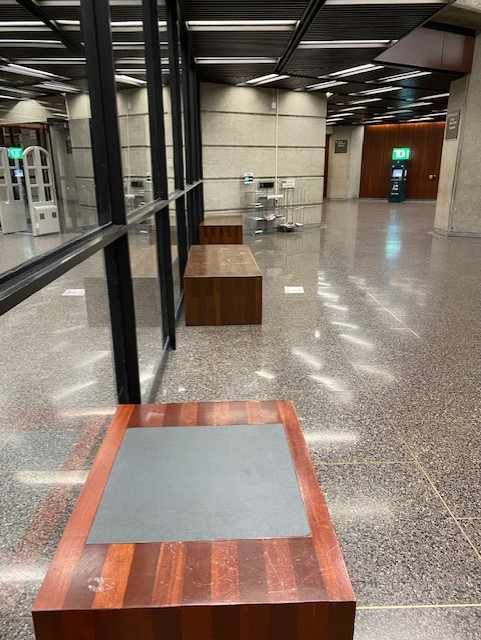
Tabling space at Gerstein

Please Note!
Selling food and drinks, including baked goods, is not permitted at the libraries, as well as the selling or distribution of products from external vendors (including items like books, banking and credit cards, etc.)
Student groups can also book spaces for their events around campus. Use the Campus Room Finder to see what is available.
For all food-related tabling and events with Campus Events, review their office’s guidelines and complete the required forms on their webpage. The library reserves the right to cancel reservations if the above conditions are not met, for safety reasons, and/or fire code violations.
Gerstein + MADLab 3D printing service is available to certified users, who have attended a training workshop and passed the certification test. Please visit https://gerstein.library.utoronto.ca/3d-printing-services for hours, pricing, upcoming trainings, and more information.
Robarts Library outdoor book drop is located at street level at the St George Street entrance north of Hoskin Avenue.
Open 24 hours unless indicated otherwise.
Robarts Library self-serve book return machines are located on the ground floor behind the loans desk.
If the machine does not print a receipt for you when you return your book, go to the loans desk and ask a staff member to produce a receipt for you.
If the machine does not accept your book, use the manual book return located right beside the self-serve machine.
You can search for items by name of publisher in ADVANCED mode of library search, as in example 1.
You can also add other criteria to the search by selecting a date range, or searching for similar titles of books from one publisher, as in example 2.
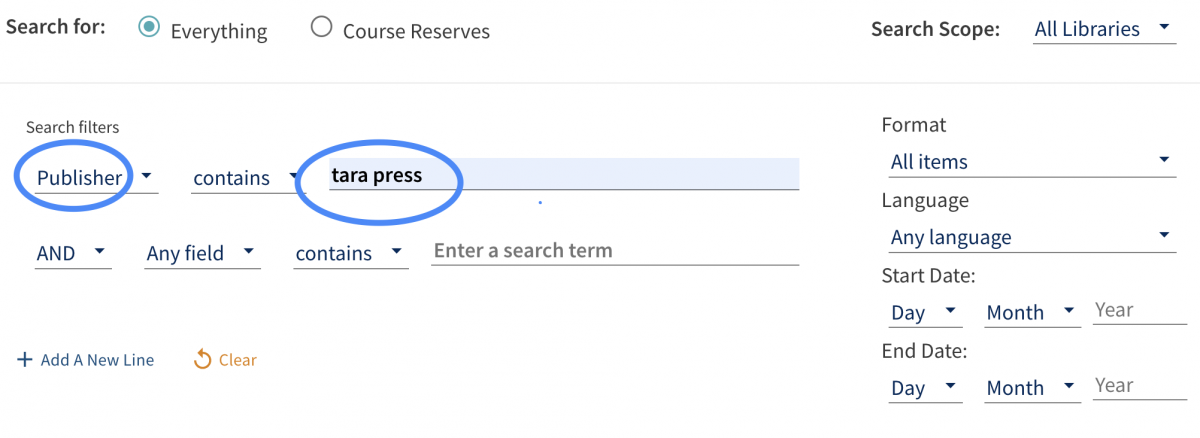
Results show books published by Tara Press in New Delhi.
From here you can use the filters on screen left to see ONLINE items only, or change the sort to newest first, or see what items by Tara Press are in Robarts stacks.
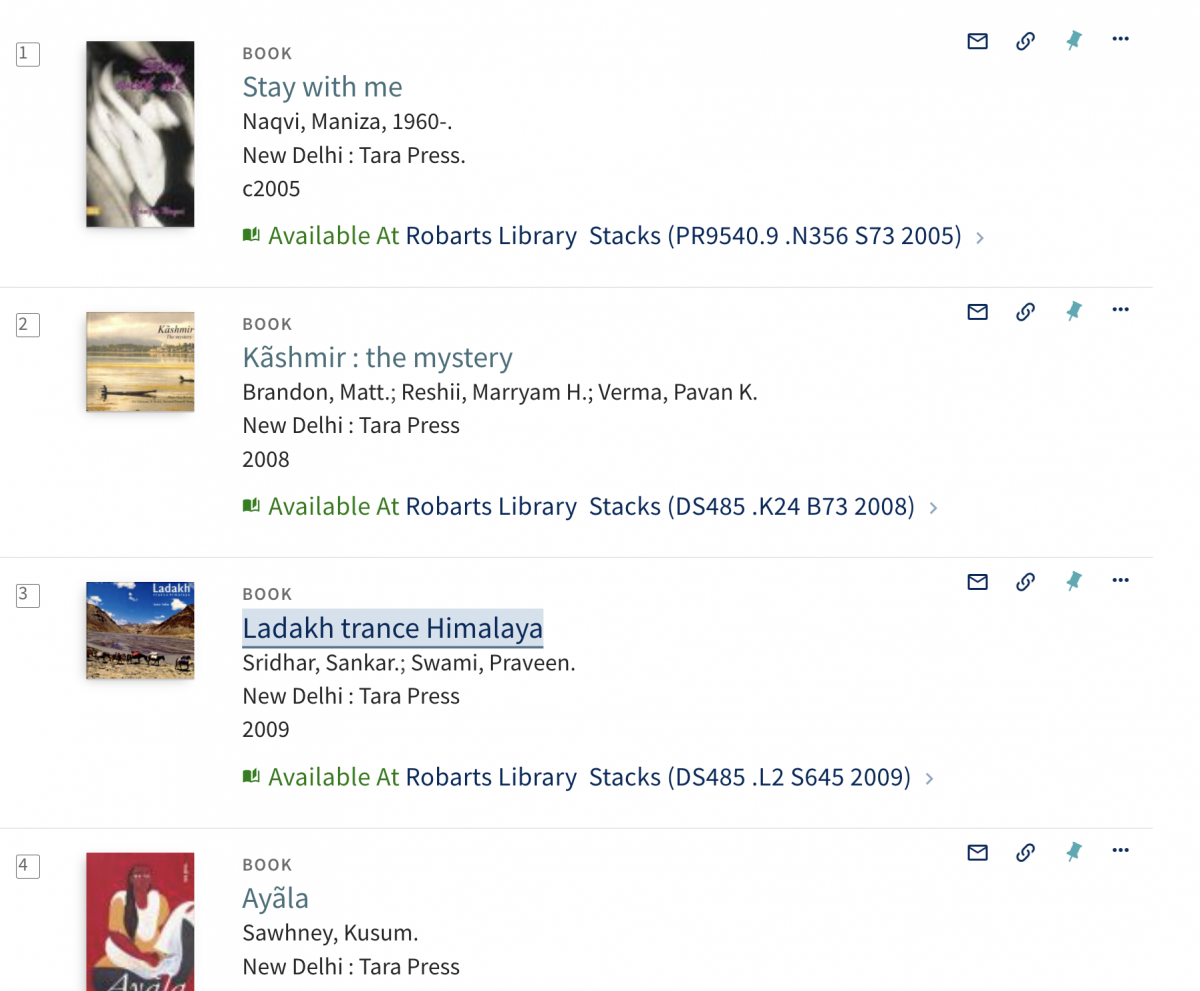
Oxford University Press publishes excellent handbooks in many subject areas, with titles following the form 'The Oxford handbook of [something]'.
This is how to search for all Oxford University Press handbooks.
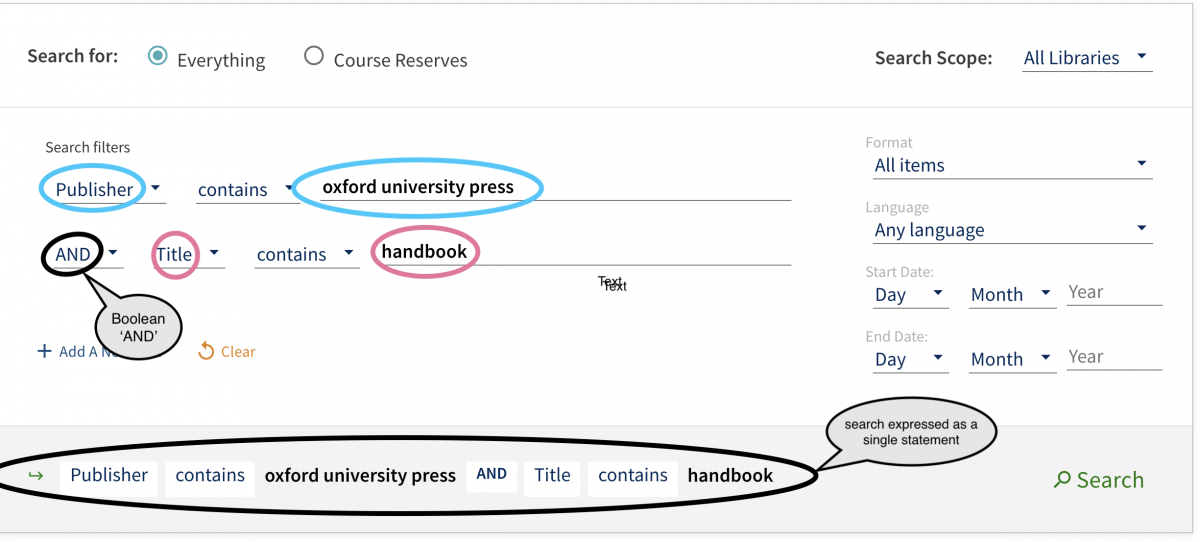
You can then filter to show only ONLINE items. Here are the first four results found by such a search.
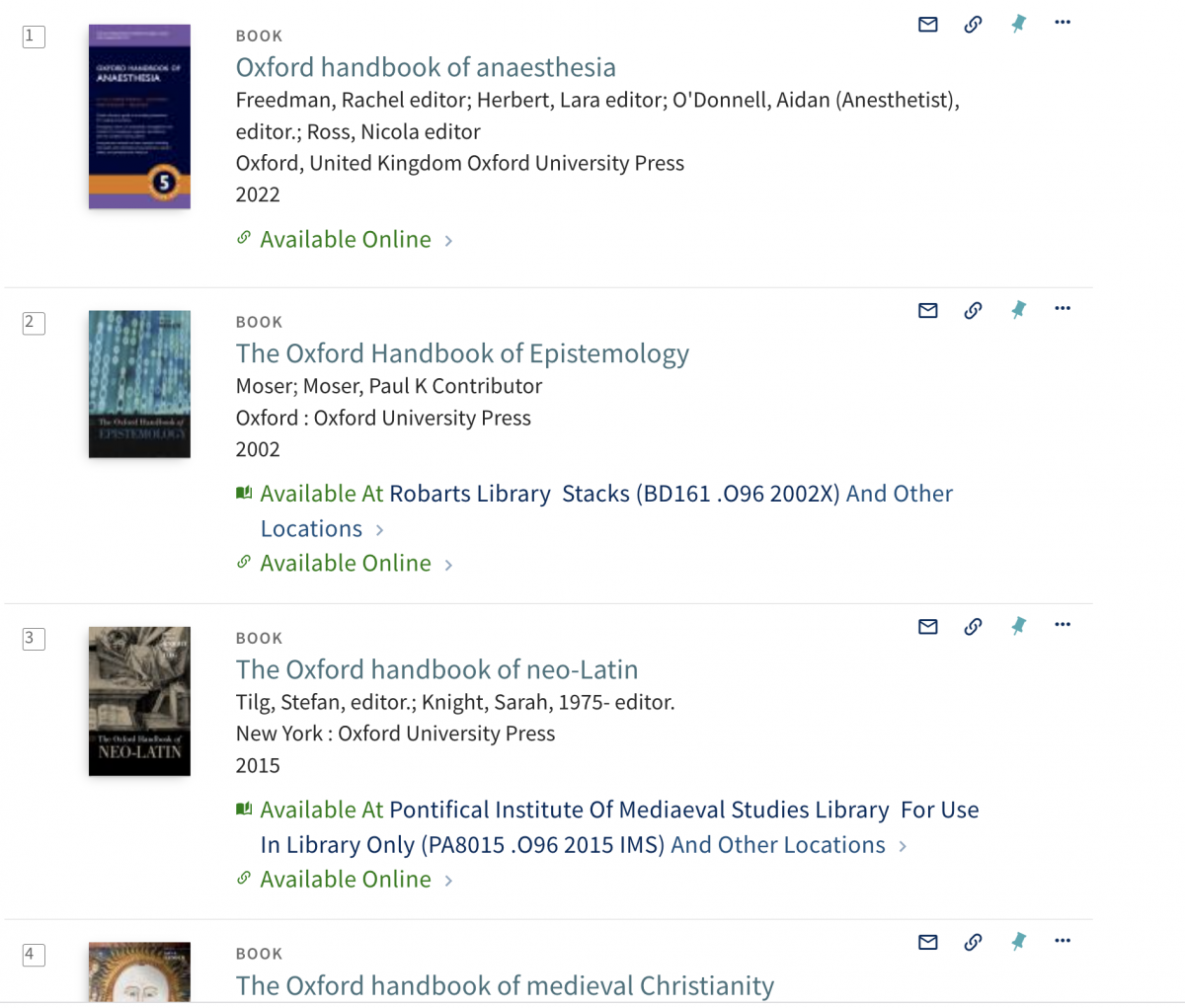
 If you're off campus, make sure you use the library's version of Google Scholar. You should see myaccess.library.utoronto.ca in the URL.
If you're off campus, make sure you use the library's version of Google Scholar. You should see myaccess.library.utoronto.ca in the URL.

After you save this setting, you will see an "Import to RefWorks" link until every Google Scholar search result.

When you click on that link, you'll be asked to sign in to your RefWorks account. If you're off campus, you'll need the U of T group code. Once you sign in, RefWorks will import the item from Google Scholar.
From the citation you want to send to Zotero, click on the cite icon (quotation marks) found underneath the citation: ![]()
Now choose RefMan. This will save it as a .ris file, which Zotero can use.
Double-click the scholar.ris file saved to your computer's downloads folder and the reference should now open up in Zotero.
Logging into the new library search system depends on your user status. If you are experiencing problems, see the HELP section.
Once you are in LibrarySearch, look for the SIGN IN buttton.

Clicking on it brings you to a box with two choices.

U of T community | Hospital staff
U of T community members: Sign in with your UTORid. If you have not used your UTORid before, this is how to find it.
Click on RESET PASSWORD


Contact Reader Registration department at reader.reg@utoronto.ca to find out
The creation of misinformation continues to generate a lot of discussion and it’s no surprise that post-truth is now in the Oxford English Dictionary (and was Word of the Year in 2016). Although many news sources have some inherent bias or political leaning, there are news outlets that are more credible than others. The sites below can help you be more critical of the information and news sources you encounter.
Refer to U of T Libraries' Newspapers guide that provides paywall-free (=free!) access to many national and international newspapers through library databases.
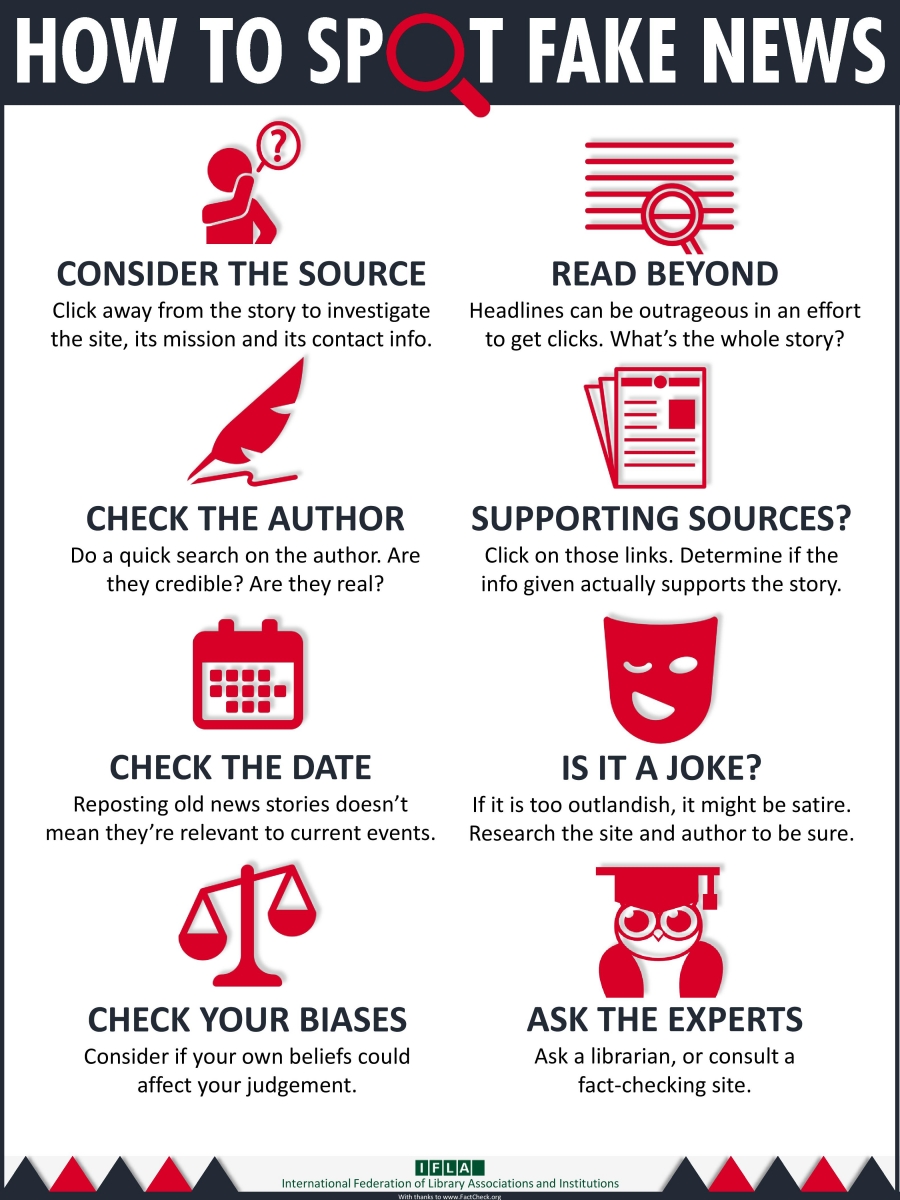
(Source image: IFLA)
One way to place an interlibrary loan request through LibrarySearch is by selecting "Interlibrary Loan Request" from the top banner.

You will be prompted to sign in, if you haven't already. Then, you will be taken to a blank interlibrary loan request form.
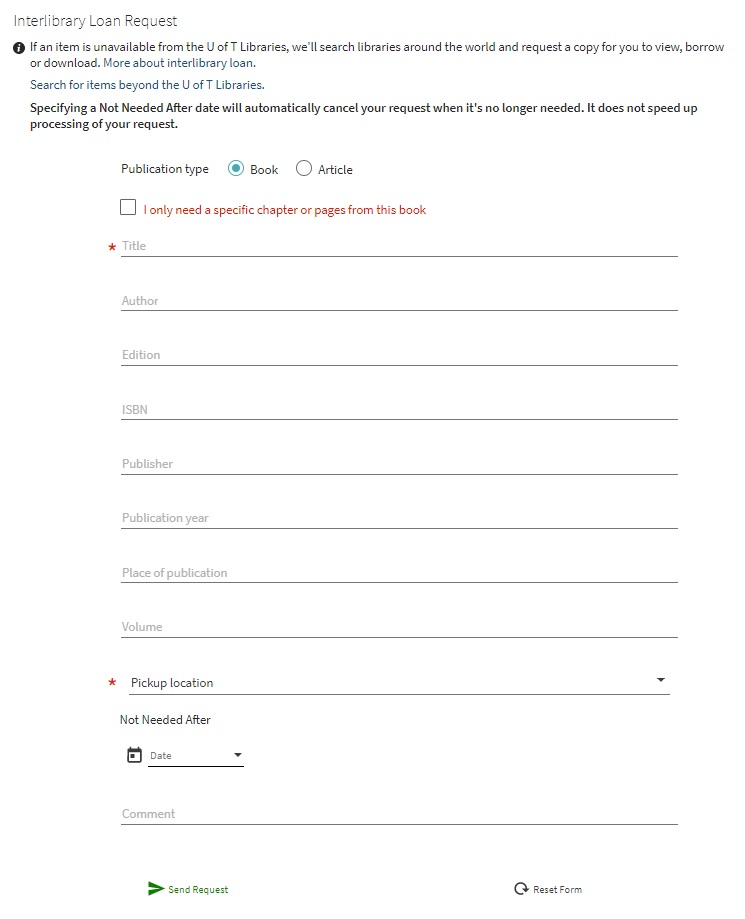
Provide as many details about the requested material as possible, and select a pickup location.
After your request is submitted, you can check your LibrarySearch account for updates on the status of your request(s). You will receive an email once your request is available.
An interlibrary loan request can also be placed on items from the U of T Libraries collection that are not currently available, or when your catalogue search returns no results.
For the Robarts, Gerstein, Engineering & Computer Science, Mathematics, & Earth Sciences libraries:
For the OISE Library:
Library of Congress call numbers are arranged alphabetically and numerically. Read call numbers from left to right and from top to bottom.
LC call numbers begin with letters that represent subject divisions. Following the initial letters are numbers that help define the subject of the material.
This call number system allows materials on related subjects to be shelved in the same area. For example, if you go to the book shelves to locate the call number QP376 .A4225 2009, other books on Neurophysiology will be found nearby.
Letters in the first line of the call number are shelved in alphabetical order.
Q QA QM RM
The second line of a call number is shelved in numerical order.
| QA | QA | QA | QA |
| 50 | 55 | 76 | 76.15 |
The third line is the trickiest part of the call number. The letter is shelved alphabetical. The numbers, however, are shelved in decimal order as if there was an invisible decimal between the letter and the number.
| QR | QR | QR | QR |
| 450 | 450 | 450 | 450 |
| .K346 | .K40 | .K5 | .L11 |
The final lines of the call numbers may include dates, volume indicators, and copy numbers. These annotations are read after the call number.
| QM | QM | QM | QM |
| 10 | 10 | 10 | 10 |
| C3 | C3 | C3 | C3 |
| c. 1 | 1933 | 1990 | 1996 |
The Lives of the Brain: Human Evolution and the Organ of Mind by John S. Allen.
| QP | represents a specific area of science, i.e. Physiology |
| 376 | defines book as Neurophysiology |
| .A4225 | is a code for the author's last name, i.e. Allen |
| 2009 | the year of publication |
This entry has been adapted from this page by Mindy Thuna.
Factiva's YouTube channel can help you learn the basics of searching for news.
ProQuest has a YouTube channel with instructional videos that cover the basics of searching in ProQuest databases.
For more personalized help, please contact library staff by phone, email, or chat.
Learn to use RefWorks online from video tutorials created by RefWorks'. Also consult the libraries RefWorks Guide.
We offer live RefWorks training during the school year, so keep an eye on our workshops page.
3D Printing @ Gerstein + MADLab is a 3D printing studio located in the MADLab at the Gerstein Science Information Centre. The service includes in-person and remote service options.
The service is available for all University of Toronto students, staff, and faculty. To use the 3D printer, you must first complete a certification training. You do not need any prior 3D printing experience.
A Course Reserves search has been added to LibrarySearch.
As you start typing search words, you can choose to search for those words in just items placed in Course Reserves.
Search words can include the name of the course instructor as well as the course code and title.

